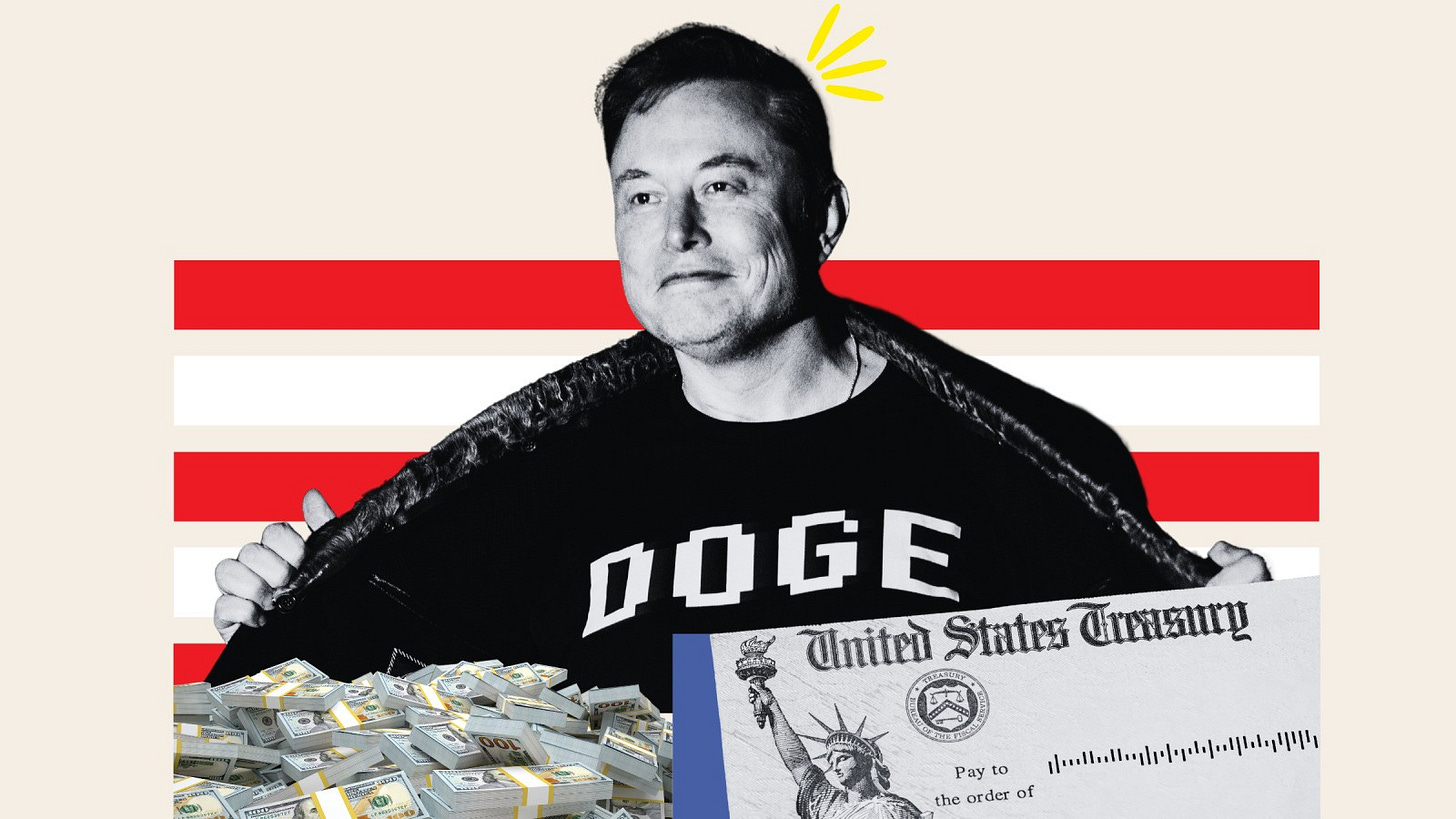DOGE Usurps the Constitutional Powers of Congress
1. Congresses Power of the Purse: DOGE has been accused of overstepping by withholding or redirecting funds appropriated by Congress, a practice known as illegal impoundment. This challenges Article I, Section 9 of the Constitution, which grants Congress exclusive authority over federal spending. The House Budget Committee argued that DOGE's actions have disrupted governmental operations, and harmed public services by bypassing that legislative control.
2. Violation of the Appointments Clause: The Constitution mandates that principal officers of the United States be appointed with Senate confirmation. DOGE's leadership structure, particularly Elon Musk's influential role without Senate approval, raises concerns about non-compliance with this requirement. A federal judge noted that DOGE's operations might contravene the Appointments Clause, questioning the legality of its authority.
3. Disruption of the Separation of Powers: By unilaterally dismantling federal agencies, such as the attempted shutdown of the U.S. Agency for International Development (USAID), DOGE has been seen as encroaching upon legislative functions. A federal judge ruled that such actions likely violated the Constitution by undermining the authority of Congress, which is solely responsible for establishing and funding federal agencies.
4. Unauthorized Access to Sensitive Government Systems: DOGE's access to critical government systems, including those of the Treasury Department, without proper authorization has raised alarms about potential breaches of privacy and security protocols. A federal judge intervened to restrict DOGE's access, emphasizing that only duly authorized civil servants should handle such sensitive information.
5. Lack of Transparency and Oversight: Operating without clear congressional oversight, DOGE's actions have been characterized by a lack of transparency. This opacity has made it challenging to ascertain the extent of its authority and the legality of its initiatives, leading to widespread concern among legal experts and lawmakers.
In order to avoid congressional approval, Musk was designated a "special government employee" and appointed as a senior advisor to the president.
However, the exact nature of this asserted that Musk is in charge of DOGE, and a federal judge has recognized Musk as the de facto leader of the organization. Meanwhile, the pace of destruction accelerates, while authority within DOGE is ambiguous. The White House has stated that Musk is not an official employee of DOGE, does not serve as its administrator, and lacks formal authority to make government decisions . Despite this, President Trump has publicly asserted that Musk is in charge of DOGE and a federal judge has recognized Musk as the de facto leader of the organization. Meanwhile, the pace of destruction accelerates.
Elon Musk’s untrained, youthful Musketeers are entirely devoid of the necessary security clearances required for such access.
In summary, DOGE's initiatives have prompted significant constitutional debates, particularly regarding the balance of power among the branches of government. The ongoing legal challenges and judicial interventions underscore the complexities and potential overreach associated with its operations.
Even so, masses of bureaucratic employees have been either fired ‘paid to quit’ under another quasi-legal move by Musk, and enabled by the president, to offer money for accepting voluntary early retirement.
This president doesn’t give a damn for the courts or the law, and never has throughout his career as a private citizen.
Case in point, Trump was ordered by a federal judge to stop all deportation flights of (what the president designated as illegal) immigrants, including those flights in the air at the time, which were ordered to be returned. Since that order, 267 flights to El Salvador have been completed, imprisoning unindicted persons, their heads shaved and loaded like cattle in chains.
To understand Trump, you must understand Roy Cohn.
Roy Cohn, Trump’s attorney through much of his career, and a man who was ultimately disbarred, was central to Trump’s response to the law. His instructions were to "win at any cost," famous for saying, “Don’t tell me what the law is. Tell me who the judge is.” Advising, “Don't admit anything, deny everything, countersue for outrageous sums,” he encouraged Trump to never back down, even in the face of overwhelming evidence or legal odds.
Dealing with contractor invoices, he advised, “offer a third, threaten to countersue and settle for half,” a strategy Trump continues in his current misguided tariff declarations.
We have a pilot with no license or experience at the controls, while the State of the Union climbs and plunges erratically.
The Constitution has never been tested on these countless infractions, because the Framers never expected the current circumstance. But our democratic republic has survived many tests in its history and will survive this as well.
As for our worldwide reputation as a steady ally and beacon of freedom, only the future can tell.
One is reminded of Ben Franklin’s response when a woman enquired what kind of government the Constitutional Convention (also known as the Philadelphia Convention), had given us, “A republic, madam, if you can keep it.”
Words to live by, as we hold onto our hats.

